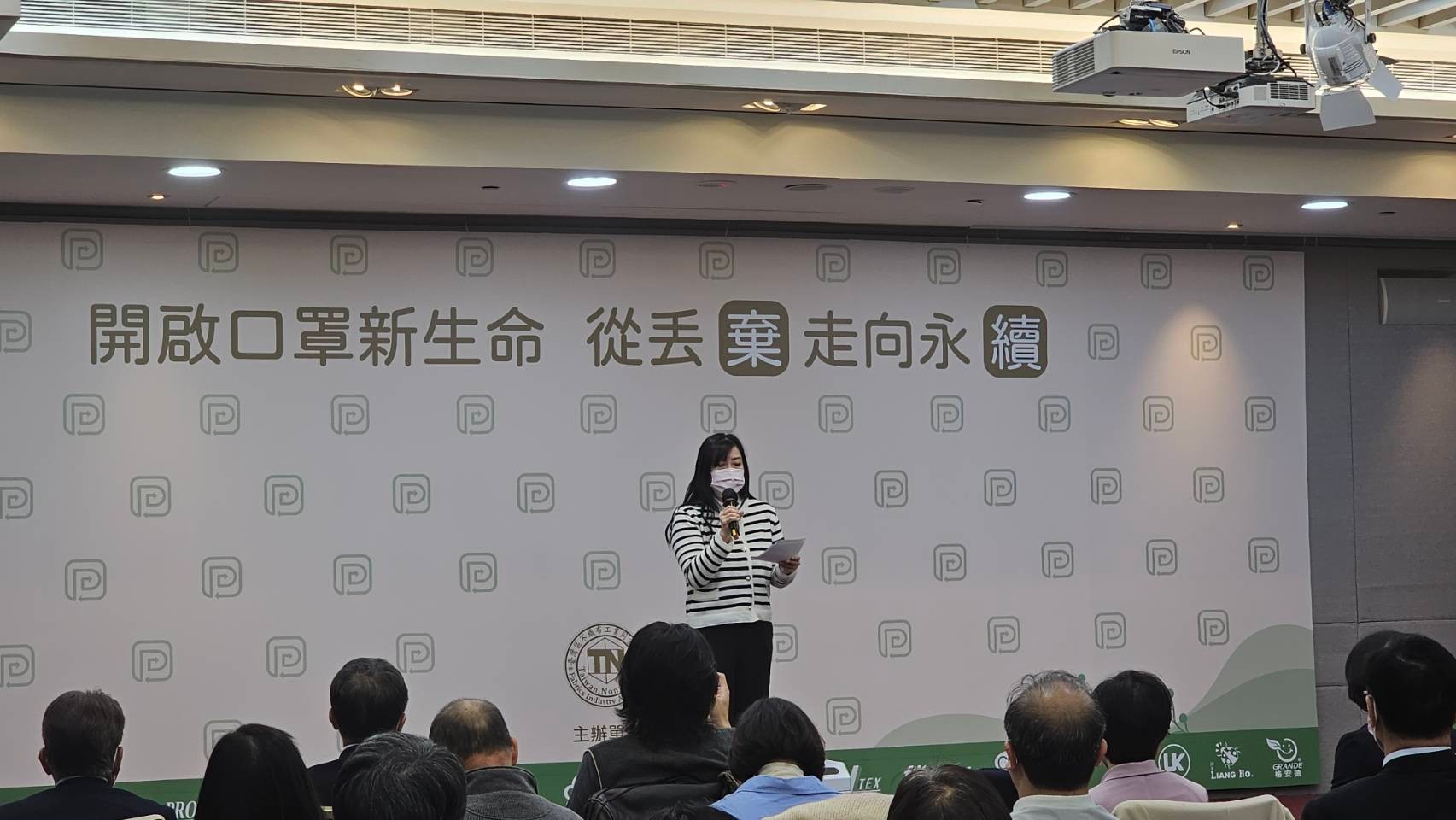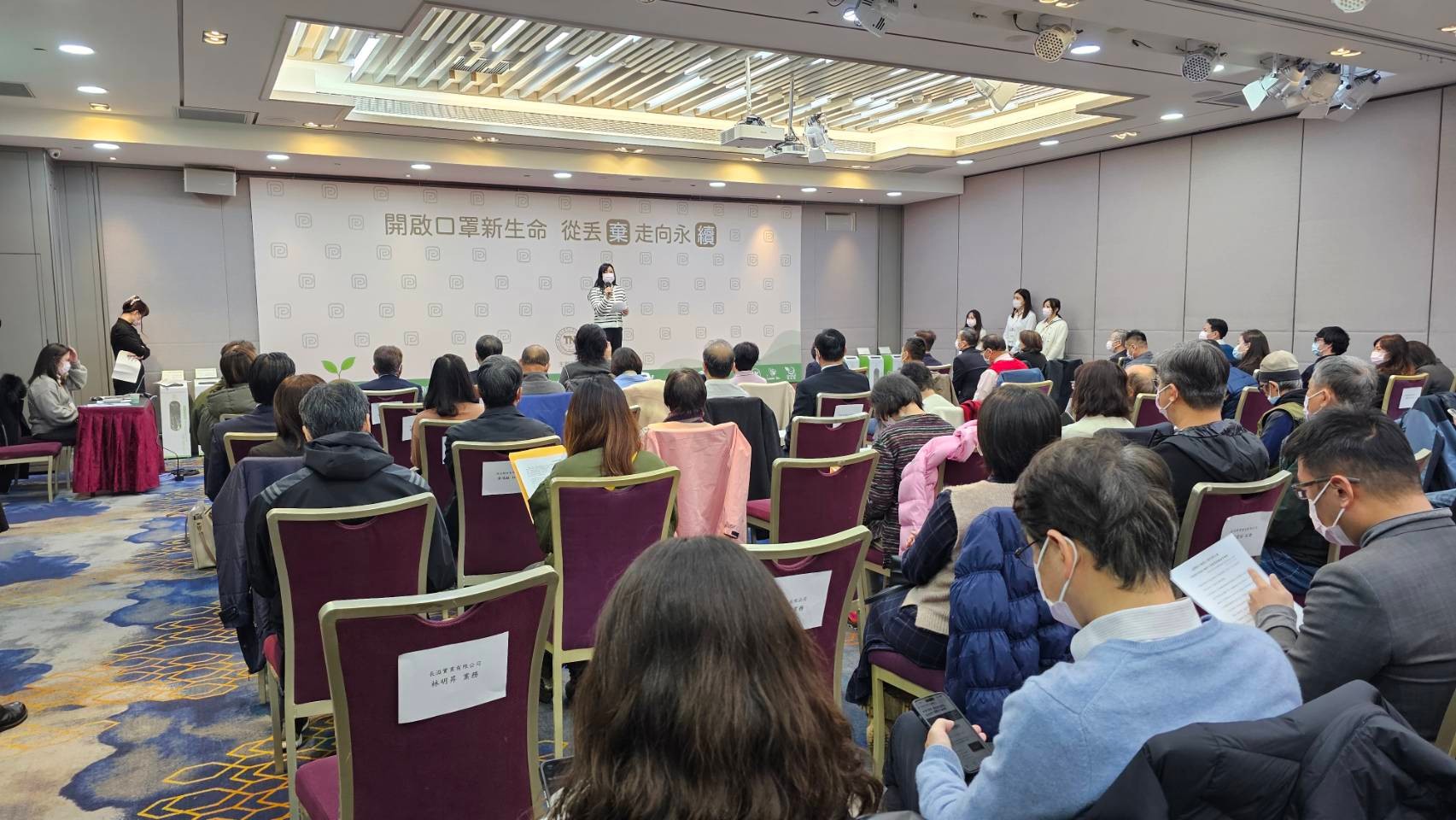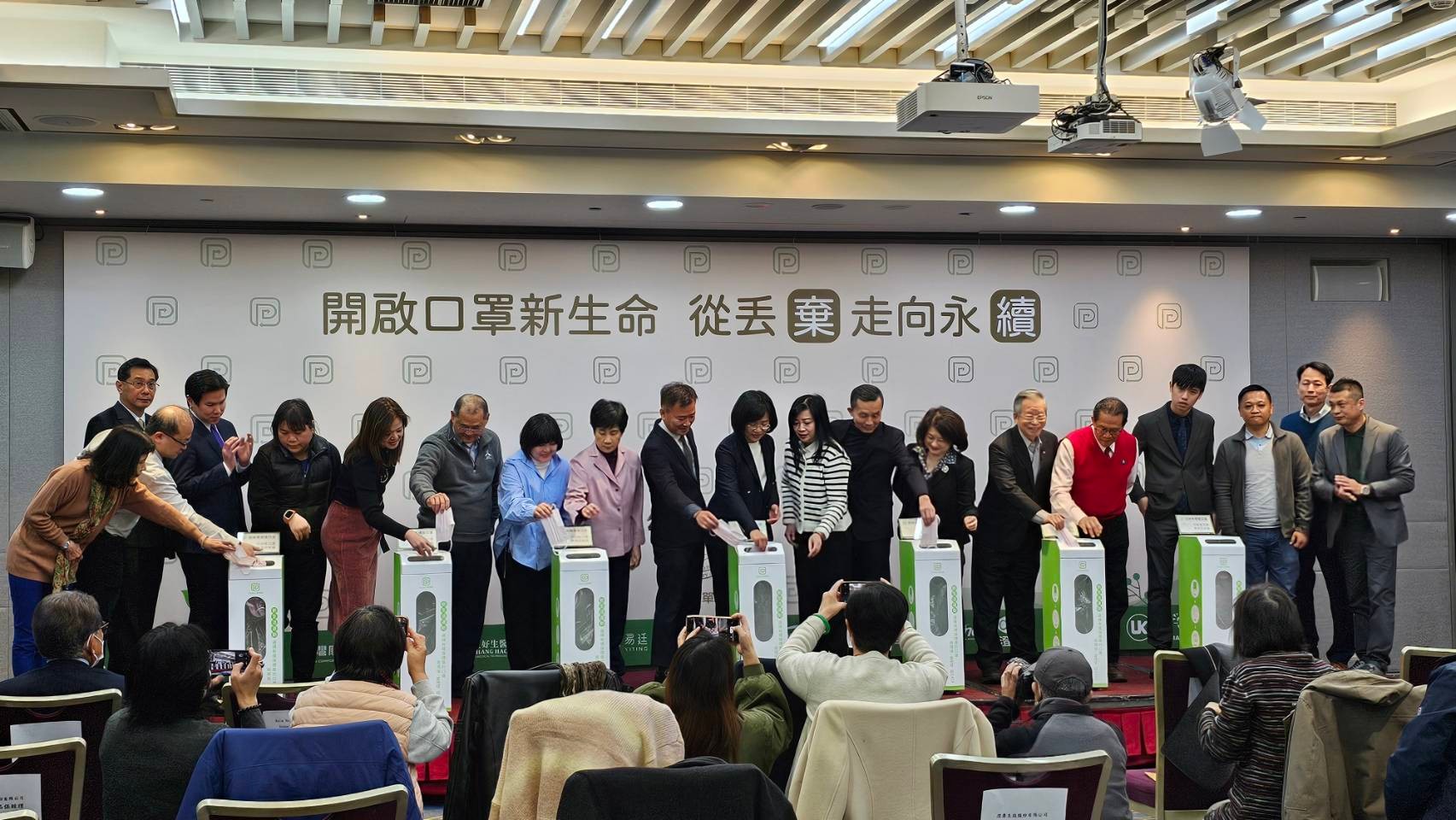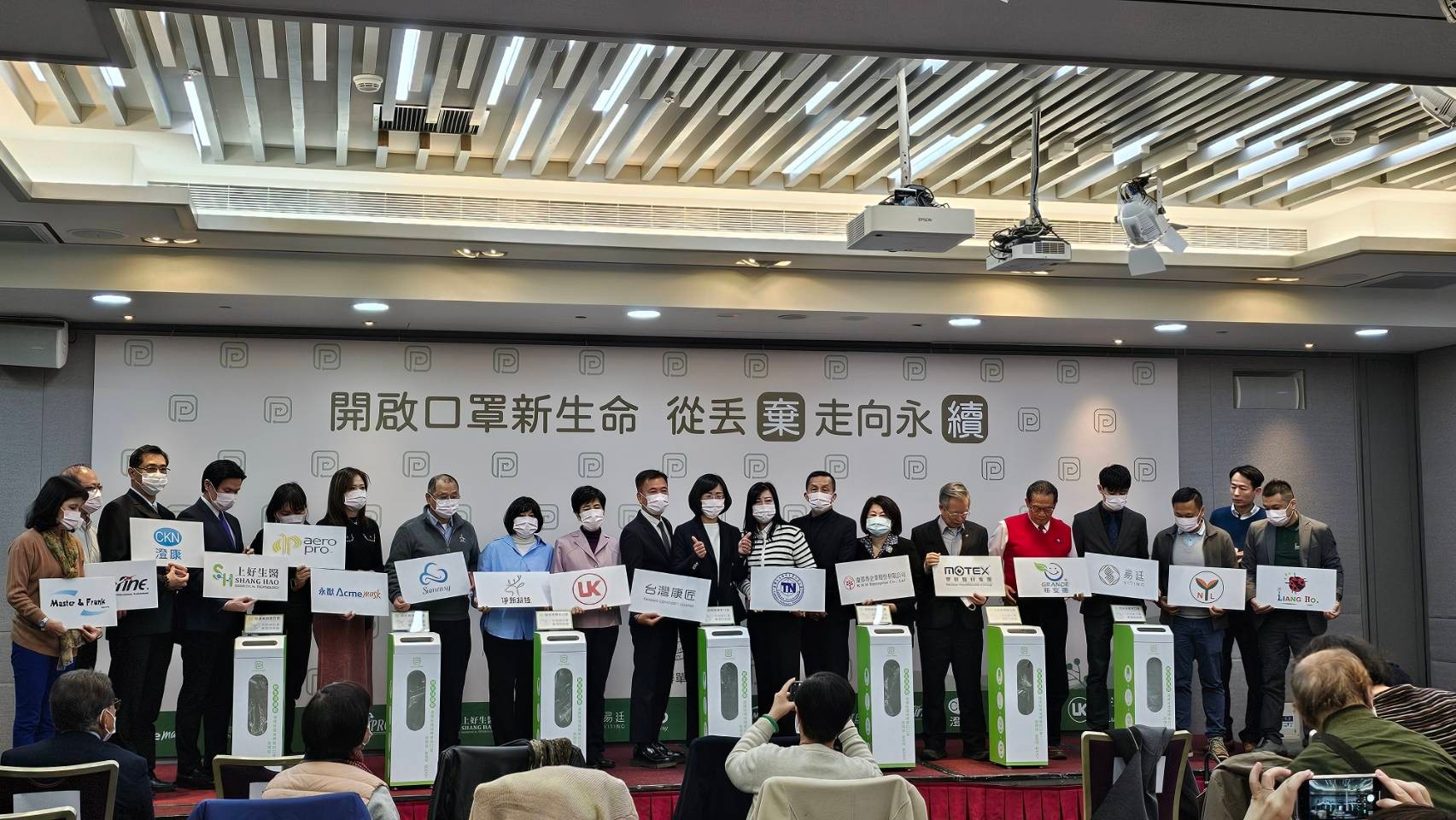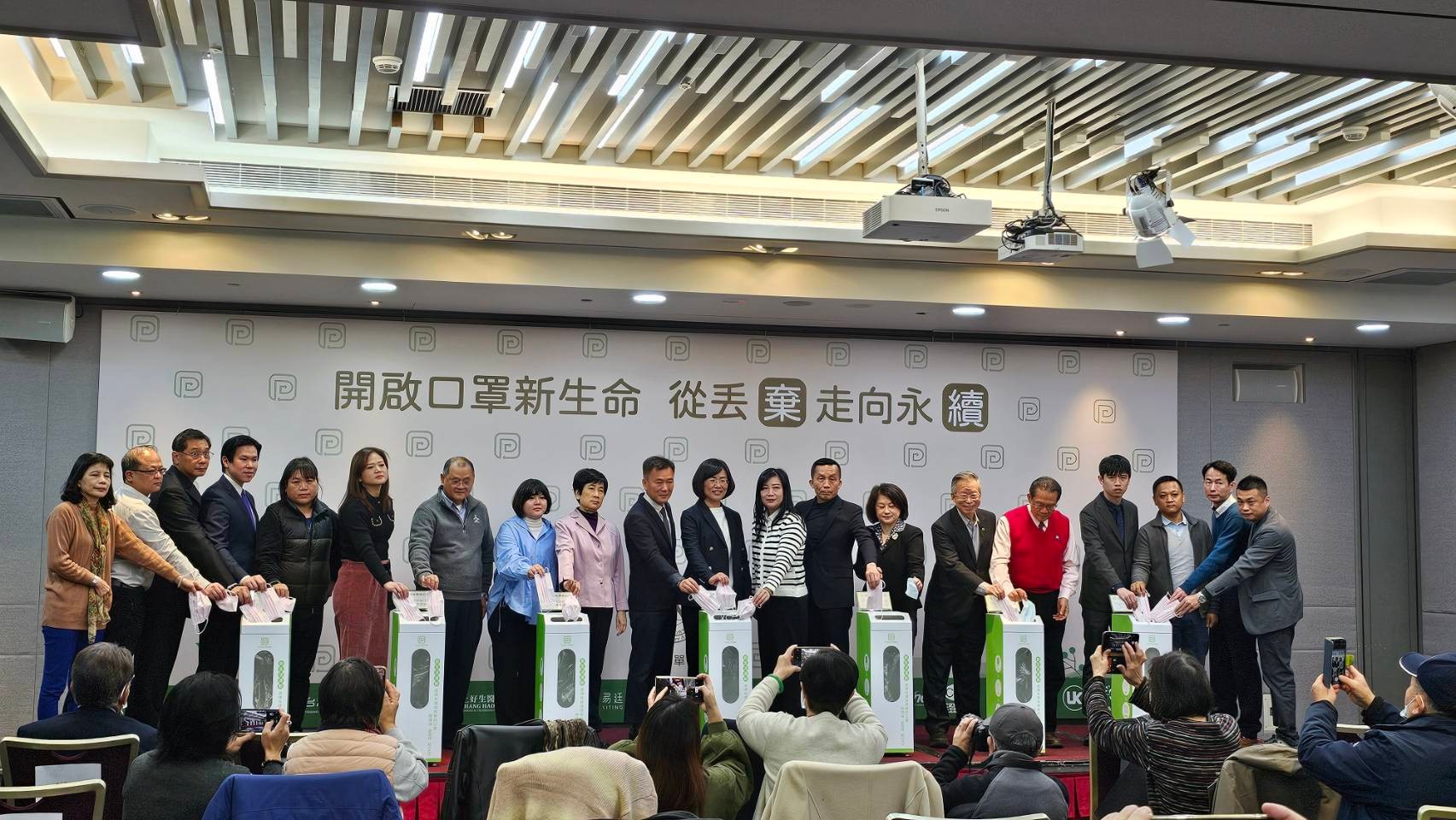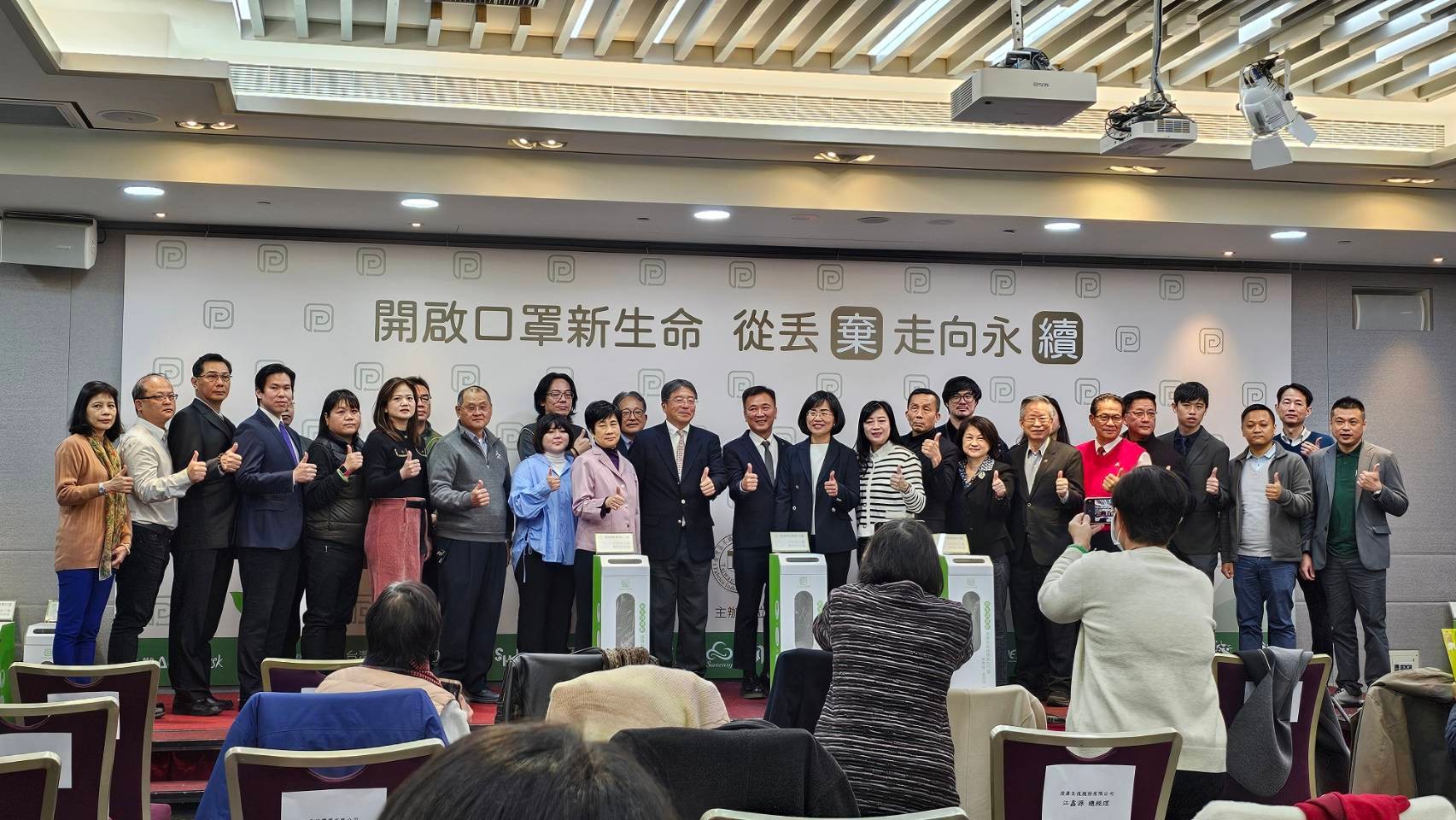Announcement of Recyclable Mask Certification and Recycling Response - Joint Press Conference
Announcement of Recyclable Mask Certification and Recycling Response - Joint Press Conference
Chairperson Chien Chia-Ching of the Taiwan Non-Woven Fabrics Association stated at today's press conference that the current Recyclable Mask Certification project is being independently promoted by the Taiwan Non-Woven Fabrics Association (hereinafter referred to as the Association) and manufacturers. The Association is responsible for managing and authorizing the use of the certification, with manufacturing and recycling carried out by companies that meet national standards. In response to government policies and global trends, the Association actively guides its member companies to move towards environmental protection, sustainability, and zero pollution, aiming to make products manufactured in Taiwan globally competitive. The Association welcomes all mask manufacturers to join the environmental protection initiative, with over 50 companies currently participating in discussions. After achieving results, it is not ruled out that the Environmental Protection Agency or other public agencies may take over the execution in the future.
Regarding how mask manufacturers can apply for the certification and ensure that it is not misused, the Textile Research Institute responsible for product testing stated that companies or businesses holding local health authority manufacturing and pharmaceutical business licenses can apply to the Association if they produce non-woven fabric masks that meet the standards for recyclable non-woven fabric masks. The Association's established team for recycling and reusing all-plastic non-woven fabric masks will conduct inspections in the middle and end of each year. If a manufacturer violates the certification regulations for recyclable non-woven fabric masks, they must complete improvements within two months and submit relevant documents for the Association's audit. If the audit is not passed or if the Association determines a serious violation of the regulations, the right to use the certification may be revoked.
The Mask Situation Room of the Textile Research Institute also provided statistics at the end of 112 (the ROC calendar year) indicating a daily production of approximately 6.09 million masks, with an average monthly output of about 183 million masks. Calculated at 4 grams per mask, this results in 732,000 tons of mask waste generated each month. If the recyclable masks are widely adopted in the future, the current mask recycling system can reduce carbon emissions from mask raw material production and incineration, resulting in a monthly reduction of 1.786 million tons of CO2 emissions.
(The carbon emissions of polypropylene PP material from cradle to gate are 1.95 KgCO2/Kg, and the carbon emissions from incinerating masks as municipal waste are 0.49 KgCO2/Kg)
Currently, manufacturers who have completed the certification application and initiated market plans revealed ongoing negotiations with channels such as pharmacies, retail outlets, and convenience stores. They hope recyclable masks can be sold through all channels for easier consumer access. Responding mask manufacturer Taiwan Kang-Jian pointed out their initial collaboration with the retail giant Carrefour, which is actively involved in ESG initiatives. Carrefour, much like the current Non-Woven Fabrics Association, has played a leading role and supported the promotion of cage-free eggs in the past. They are pleased that Carrefour is providing strong support for the recyclable mask promotion project. It is planned to place mask collection boxes in Carrefour's concept stores, accompanied by detailed introductions through audiovisual materials and information boards, to raise awareness among consumers about recyclable masks. Meanwhile, all businesses and public institutions willing to participate in mask recycling are also welcome.
Recyclable Mask Certification mobilizer Chen Yong-Zhi mentioned during the press conference that Taiwan is the world's second-largest producer of masks and has a responsibility to lead and encourage countries worldwide to respond together in mask recycling. Turning masks from disposable to sustainable is not only a corporate responsibility but also an enhancement of the national image, indirectly improving international competitiveness. When asked why promote recyclable masks, Chen Yong-Zhi stated that during the pandemic, the global transition from a shortage of epidemic prevention supplies to oversupply has led to the adoption of mask-wearing as a daily habit in public spaces. This has invisibly increased the monthly production of billions of tons of mask waste. Besides being incinerated, a portion of these masks is casually discarded into the natural environment, eventually returning to the food chain in the form of plastic particles. Protective equipment, intended to safeguard health, is turning back to harm us. Through the recyclable certification, can we make disposable masks embark on a different product life cycle, moving towards a sustainable green environment and making our lives more environmentally friendly, creating a better planet for future generations.
